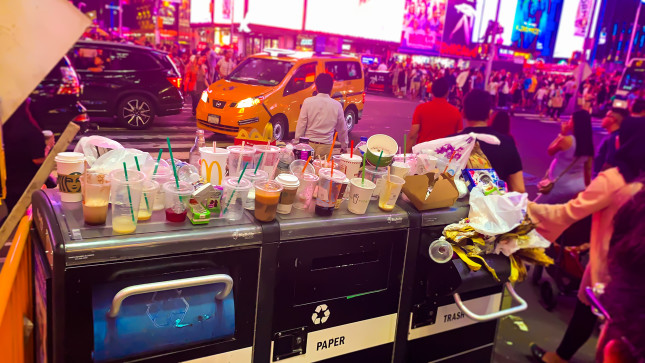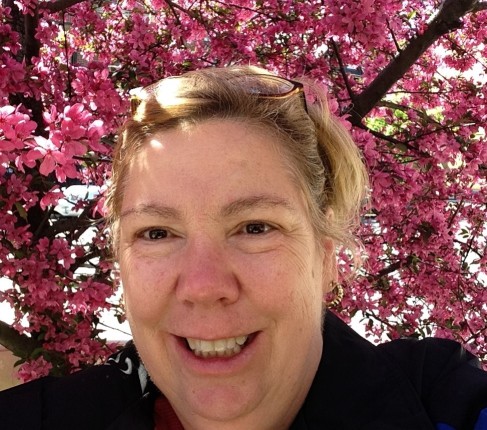-
Championing Ecological Health and Environmental Justice in Plastic Action: Q&A with Judith Enck, Founder of Beyond Plastics
“There is one thing I think about a lot: how do you get people active on plastic waste? How do you structure having impact?”
Judith Enck discovered her interest in environmental activism when she interned in college for the New York Public Interest Research Group (NYPIRG) and was asked to lobby for the Returnable Container Act (commonly referred to as the Bottle Bill), which had stalled for 10 years. The difficulty she faced in lobbying for this relatively simple bill motivated her to return for a second internship. After graduation, she abandoned plans for social work or law school to return to environmental advocacy and quickly became the executive director of Environmental Advocates NY. The bill eventually became a New York State law in 1982 and has since prevented the unnecessary export or landfilling of billions of plastic bottles. Judith learned important lessons from that victory and has been making her mark on America’s waste policy ever since.
With whirlwind developments in packaging technology over the last few decades, the world has come to expect the convenience and versatility that plastic brings. Yet, the production of plastic and its disposal are both contributing to health and environmental effects that disproportionately effect those least equipped to handle them. Judith was galvanized to work on these issues because she saw how the global community had turned a blind eye to the consequences of our reliance on plastic. How factories spew pollutants into backyard streams and fields, dining establishments package their food with the cheapest toxin-laden resins, and how “polluted landfills and incinerators are almost always sited in low-income communities and communities of color.”
A self-described “solid waste gal,” Judith views waste issues from an equity perspective. From her first bottle bill and her campaign to ban medical waste incinerators, to her appointment as U.S. EPA Regional Administrator in the Obama Administration and Congressional testimony in support of the Break Free From Plastic Act of 2020 (BFPPA), waste activism is the thread that runs through her career. Plastics represent a systems-scale crisis to Judith, because addressing it demands a holistic view of the production pipeline and connects the fields of climate change, public health, and environmental justice.
After her tenure with the Obama Administration ended in 2009, Judith decided to use her decades of public policy expertise to support grassroots advocacy and bring people into the plastics movement. She is currently a professor at Bennington College in Vermont and founder and president of the organization, Beyond Plastics.
China Environment Forum (CEF): How does your work with Beyond Plastics at Bennington build upon existing plastic waste advocacy?
Judith Enck (JE): I’m really interested in supporting the grassroots. The first thing we did [at Beyond Plastics] was work with the Conservation Law Foundation to draft a model bill called the Plastic Trifecta. It bans plastic bags, puts a fee on paper bags, bans polystyrene food packaging, and offers plastic straws only upon request. We encourage people to work on the Plastic Trifecta Bill because it is manageable: you could show up to your city council and try to pass it. You don’t need a lobbyist in Washington or in the state capital to make a difference on this. There’s a huge amount of interest in plastic waste and hundreds of local laws have already been passed which then lead to state laws.
We have the audacious goal to eliminate plastic pollution everywhere. We pick a couple of campaigns every year and are always looking at where we can add value.
CEF: How has public awareness shifted on plastic issues over the course of your career?
JE: When I first started working on plastic issues and thinking about how to teach it to my class, there was not a lot of information and I was having a really hard time finding articles and scientific papers for my first syllabus. Now there’s too much information. Media coverage has drastically shifted onto plastic issues in recent years. I always tell people, “this may not last.” The media may move on to other issues.
In the last four years, a growing number of people were appalled at the federal environmental policies and wanted to do something. It was really hard to be active on the federal level if you’re a resident who cares about plastics issues—what could you do about the Trump administration rolling back a hundred environmental regulations? People were looking for environmental advocacy work and discovered that some plastic waste problems can be tackled locally.
CEF: What are the future trends in plastic pollution regulation in the United States?
JE: Bottom-up action on plastics can catalyze more effective top-down legislative action. The risk is the higher you go in the government, the higher the likelihood statutes may have loopholes. You can protect more against that locally. New Jersey had over 150 local plastics reduction laws on the books which led to the adoption of a state law last year—the Plastic Trifecta. Some of the businesses you think would oppose it said, “We can’t deal with the patchwork quilt of all these different rules. Give us one state policy.”
I’m optimistic because there are hundreds of laws in the books. But guess what, I looked up how many local governments there are in the United States, and there are 12,000. Last time I checked we had 450 local laws, so we still have a long, long way to go. Entire states have nothing in the books.
CEF: Do you have a closed loop hero or heroine in this field, someone you look up to?
JE: I work with amazing women all over the country who really care about their communities. It is astonishing the volume of work women do on plastics issues and most of them are unpaid.
Martha Ainsworth in Maryland and Debby Lee Cohen in New York City are two. Ainsworth is the Zero Waste team leader of the Prince George’s Sierra Club Group in Maryland. Cohen’s organization is called Cafeteria Culture. She has two daughters in the NYC public school system and was really concerned that kids and teachers were served lunch everyday on polystyrene trays. If the food is warm or acidic, the polystyrene leaches into the food. So she connected with other moms and this group of determined mothers got the NYC school system—the largest public school system in the country—to stop using polystyrene trays. One of the mothers who was a filmmaker made the movie “Microplastic Madness” that chronicled their plastics reduction work with Brooklyn school kids. Whenever I’m feeling a little blue I just watch the little trailer. It’s so uplifting.
This blog is part of the Closed Loop Innovator Series which profiles stories of women around the world innovating in business, civil society, and science to reduce plastic waste pollution. A condensed version will appear in the upcoming China Environment Forum publication, InsightOut: Closing the Loop on Plastic Waste in China and the U.S.
Clare Auld-Brokish was a research assistant at the Wilson Center’s China Environment Forum where she worked on urban water issues in China and global plastic waste. She returned in 2020 from a Fulbright fellowship in Yunnan, China where she conducted environmental science research on freshwater lakes and constructed wetlands.
Tongxin Zhu is a research assistant at the Wilson Center’s China Environment Forum. Her current focus is ocean plastic waste in China with an emphasis on consumer-facing industries. She recently graduated from Georgetown University, McCourt School of Public Policy with an MPP degree.
Sources: Beyond Plastics, Cafeteria Culture, CIEL, Conservation Law Foundation, New York Department of Environmental Conservation, Sierra Club Prince George’s Group, Waste Dive, Wave Farm
Lead image credit: Garbage piles up and overflows the trash cans in Times Square, New York City, courtesy of gg_photography, Shutterstock.com.
 A Publication of the Stimson Center.
A Publication of the Stimson Center.









